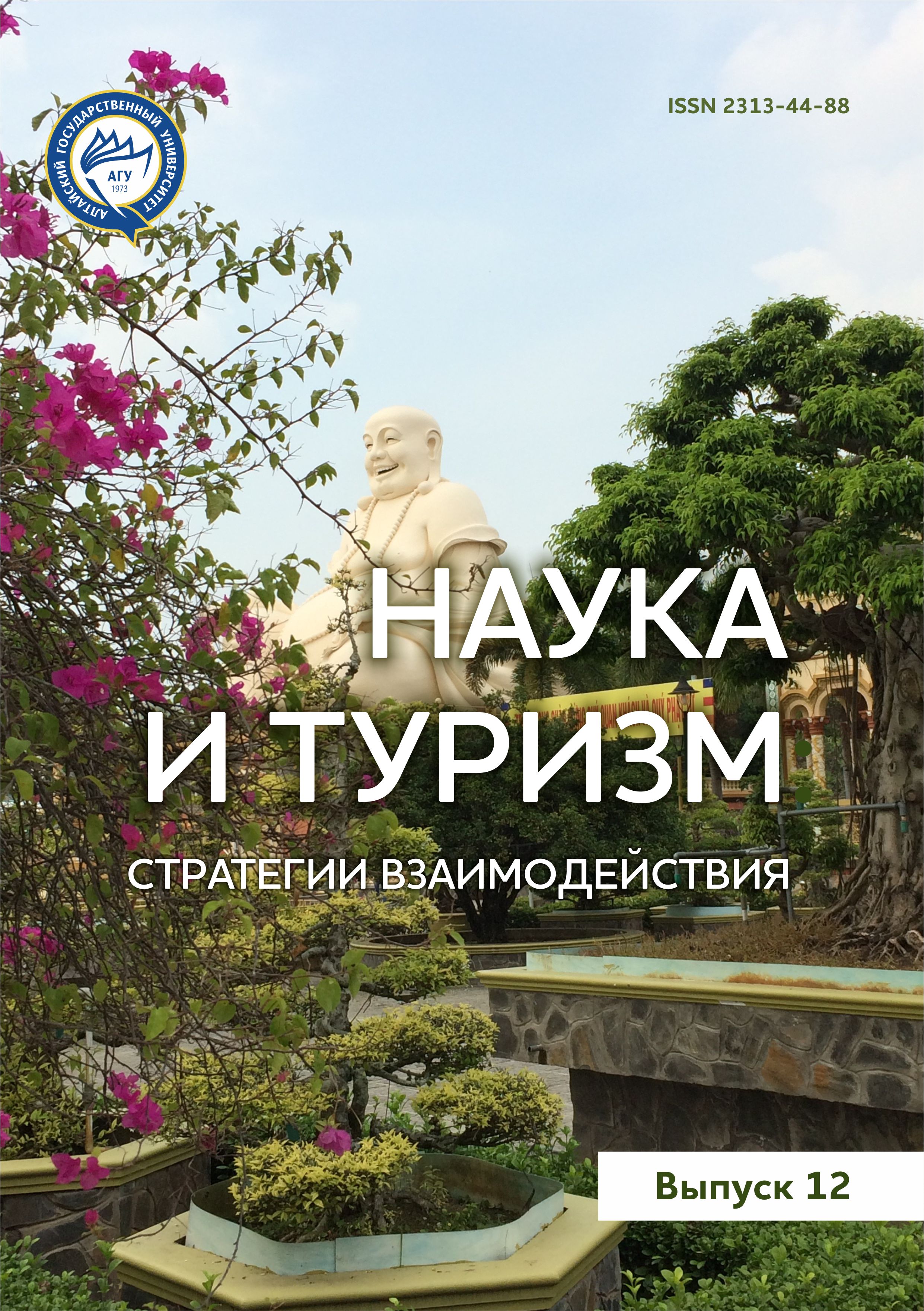TOURIST BRANDS OF THE ALTAI REPUBLIC AND THE ROLE OF MUSEUMS IN THEIR DEVELOPMENT
Abstract
The article provides an analysis of tourist brands of the Republic of Altai from a historical perspective, discusses the main problems and ways of their formation and development. Today Branding has become fashionable, a mass phenomenon, which is used in all spheres of activity. As the study showed, the Republic of Altai has passed in its development the evolution of its tourist image from the «bear corner», «unexplored, legendary country», «ore pantry of Russia» through the «center of sports tourism» to «Siberian Switzerland», «Countries of blue lakes», «Golden mountains of Altai», «tourist Paradise». Today the Republic of Altai is officially recognized by the world community as a tourist region and has its own regional brand «Gorny Altai». Much attention is paid to one of the brightest brands of the Republic: «Altai - the Treasury of world heritage». Despite the fact that the Altai Republic is one of the richest regions of the country in terms of uniqueness and number of heritage sites, this potential of the Altai Republic.
Downloads
References
Донскова Л.И., Редькин А.Г. Подходы к исследованию социального туризма: зарубежный и российский опыт // Наука Красноярья. - 2018. - Т. 7, № 4. - С. 100-125.
Донскова Л.И., Макаров А.А. Исследование социального туризма в молодежном сегменте: современное состояние, проблемы, перспективы: теория и практика // Наука и туризм: стратегии взаимодействия: сборник статей / под ред. А.Г. Редькина. - Вып. 11 (4). - Барнаул: Изд-во Алт. ун-та, 2019. - С. 9-33.
Amore A. From governance to meta-governance in tourism? Reincorporating politics, interests and values in the analysis of tourism governance / Alberto Amore, C. Michael Hall // Tourism Recreation Research. - 2016. - Vol. 41, No. 2. - P. 109-122. [Электронный ресурс]. - URL: DOI: 10.1080/02508281.2016.1151162
Fong V.H.L., Wong I.A., Hong J.F. Developing institutional logics in the tourism industry through coopetition // Tourism Management. - 2018. - Vol. 66. - P. 244-262.
Haxton P. A review of effective policies for tourism growth / Peter Haxton // OECD Tourism Papers, No. 01. - OECD Publishing, 2015. [Электронный ресурс]. - URL: DOI: 10.1787/5js4vmp5n5r8-en
Kouřilová J. Kratochvílová I.Social tourism support in the Czech Republic // Czech Journal of Tourism. 2014. Vol. 3, No.1. P. 63-81. DOI: 10.2478/cjot2014-0004
Paik W. The politics of Chinese tourism in South Korea: political economy, state-society relations, and international security // The Pacific Review. - 2019. - [Электронный ресурс]. - URL: 10.1080/ 09512748.2019.1588917. DOI: 10.1080/09512748.2019.1588917
Valente F. Leadership and governance in regional tourism / Flávio Valente, Dianne Dredge, GuiLohmann // Journal of Destination Marketing & Management. - 2015. - Vol. 4, No. 2. - P. 127-136.
Wan Y.K.P. Political economy and the emergence of a hybrid mode of governance of tourism planning / Yim King Penny Wan, Bill Bramwell // Tourism Management. - 2015. - Vol. 50. - P. 316-327.
Wang C. The role of local government and the private sector in China's tourism industry / Caiping Wang, Honggang Xu //Tourism Management. - 2014. - Vol. 45. - P. 95-105.





